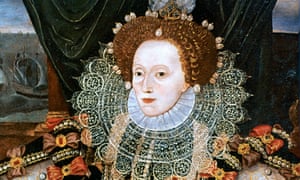via Boing Boing by Andrea James

If you thought you might live out your days without seeing an industrial hedge clipper form shrubs into perfect spheres while accompanied by Wagner, everything changes today.
Continue reading and watch the video
==============================
via the Big Think blog by Philip Perry
Researchers used the same method that would be employed to detect life on Mars.
If the sheer number of Earth-like planets wasn’t enough to convince you there’s life elsewhere in the universe, this might. Scientists studying the oldest ever discovered fossils, found that microbes actually lived very early on in our planet’s history, when it wasn’t what we traditionally consider hospitable to life. The results of this study were published in the Proceedings of the National Academy of Sciences (PNAS).
Continue reading
==============================
via Arts & Letters Daily:Ed O’Loughlin in The Irish Times
Maya Jasanoff views Conrad’s troubled life through the lenses of his four greatest novels
The years have not been kind to Joseph Conrad, feted in his lifetime as the greatest writer of English-language fiction. Although he is still a historical literary titan, these days his most widely read novel, Heart of Darkness, is, tellingly, also his shortest, better known to many through its Vietnam War retread, the movie Apocalypse Now. Hailed in the West as an early shot against white colonialism, the novel found much less favour among its African subjects. The celebrated Nigerian writer Chinua Achebe denounced Conrad as a “thoroughgoing racist” who portrayed Africans only as rudimentary savages. The title of Conrad’s 1897 novella, The Nigger of the ‘Narcissus’, speaks for itself – although seldom now aloud, or in public.
Conrad’s leading characters are almost all white males, his women often little more than plot points (although Emilia Gould, in Nostromo, and Winnie Verloc, in The Secret Agent, are notable exceptions). The casual anti-Semitism that was a feature of so many great works of contemporary English fiction is present, too, in some of Conrad’s work.
Continue reading
==============================
via the Guardian by Angela Wintle
The singer, 100 this year[2017], talks about her childhood, earning more than her dad, meeting her musician husband and why she had a small family

Dame Vera Lynn at home in Sussex. Photograph: Heathcliff O'Malley/Rex/Shutterstock
I nearly died before I got started. When I was a toddler, I fell ill with diphtheritic croup and was taken to an isolation unit. One of my earliest memories is of being on my own in a tent surrounded by steaming kettles. I was discharged after three months, just in time for my third birthday. As I’d missed Christmas, I had my Christmas and birthday all in one – in March. Mum even found a Christmas tree.
Perhaps this explains why Mum was overly protective. For a long time after I started school I wasn’t allowed to play in the street or visit friends. She wasn’t as strict with my brother, Roger, who was three years older, but fortunately I didn’t mind my own company or feel the lack of friends.
Mum worked for a London dressmaker before she married. When she was forced to give up work after her marriage, she carried on dressmaking for people at home. She was the one with the get-up-and-go. Dad, who worked as a plumber, was a quiet and undemanding man who liked to laugh – and he was a very good dancer.
Continue reading
==============================
via Interesting Literature
A commentary on one of Hopkins’s ‘Terrible Sonnets’
The mid-1880s was not a good time for Gerard Manley Hopkins. Lonely in Ireland, the poet fell into a black pit of depression, out of which came the ‘Terrible Sonnets’ which represent, after his flurry of creativity in 1876-77, the most productive time of his poetic career. ‘Carrion Comfort’ is perhaps the most famous of these sonnets.
Continue reading
==============================
via the New Statesman

Everyone has a time when childhood ends and this thing called “on your own” begins. This time was the summer of 1968, not long after the assassination of Martin Luther King, and it was my gap year before beginning university. I was the eldest child and eldest daughter of two people who worked hard to better the lives of all of us kids. And being two African Americans whose origins were in the South, our parents wanted to have a safe and “proper” life. We were raised carefully, shielded against the various pitfalls, accidents of society and the flotsam and jetsam of African-American life. Our little house, with its neatly cultivated lawn in front and garden in the back, its two-car garage and swept front steps, was the replica of all of the houses in our street. Church on Sundays, school uniforms, no blaring music – all of this was to help us be the opposite of what society assumed about us.
In my case this was all going to plan until the year 1968 arrived, and a series of national catastrophes and opportunities presented themselves and I seized the moment and flew away. One of my landing places was the campus of the University of Chicago where a friend was an undergrad. One afternoon, I saw an album lying on a bed. It was called Cheap Thrills by something called Big Brother and the Holding Company. Its cover was a lurid cartoon landscape, and the record itself provided the leitmotif for the life I was about to live.
Continue reading
==============================
via Boing Boing by Rob Beschizza

Wired UK created a beautiful chart to illustrate the miseries of Britain's current occupants. Debt, divorce, welfare cuts and housing prevail, but further down the threads become more tangled. Parking fines?
==============================
vie the Guardian by Alison Flood
A batch of letters given to the British Library throws light on the English monarch’s growing frustration with her exiled cousin

An icy missive from Elizabeth I to the imprisoned Mary, Queen of Scots, in which the monarch makes full use of the royal “we” as she discusses how “greeved” she is to “behold the alteration and interuptuion” of Mary’s “frendshippe”, forms part of a new donation of letters to the British Library.
The letter is dated 31 October 1584 – less than three years before Mary was executed at the age of 44 on 8 February 1587. Mary had fled Scotland for England in 1568, after an uprising against her. She had sought help from her cousin, Elizabeth, but the queen felt Mary was a threat and imprisoned her for years, latterly with Sir Ralph Sadler, who kept her in custody at Tutbury Castle in Staffordshire between 1584 and 1585.
Continue reading
==============================
via Arts & Letters Daily: Justin Stover in American Affairs

The humanities are not just dying. By some measures, they are almost dead. In Scotland, the ancient Chairs in Humanity (which is to say, Latin) have almost disappeared in the last few decades: abolished, left vacant, or merged into chairs of classics. So too in the same period, the University of Oxford revised its famed Literae Humaniores course, “Greats,” into something resembling a technical classics degree. Both of these were long survivors, throwbacks to an era in which Latin in particular played the central, organizing role in the constellation of disciplines that we call the humanities. The loss of these “vestigial structures” reveals a long and slow realignment, in which the humanities have become a loosely defined collection of technical disciplines, with some genealogical connection to the old arts curriculum and the humanistic curriculum of the new universities of the Renaissance.
The result of this is deep conceptual confusion about what the humanities are and the reason for studying them in the first place. I do not intend to address the former question here, nor the related question about whether there can indeed by any coherent description of the humanities without Literae Humaniores, nor the question about which specific current academic disciplines are included. After all, most of us know the humanities when we see them.
Continue reading
==============================
via Interesting Literature
The best villanelles everyone should read
As its name suggests, the villanelle is a French verse form, yet English has become its natural home. The villanelle is the greatest immigrant verse form. This intriguing verse form comprises 19 lines made up of five tercets (three-line stanzas) and a concluding quatrain. As the Oxford English Dictionary summarises it, ‘The first and third lines of the first stanza are repeated alternately in the succeeding stanzas as a refrain, and form a final couplet in the quatrain.’ Although the form dates back to a late sixteenth-century poem ‘Villanelle (J’ay perdu ma Tourterelle)’ by Jean Passerat, it was in the twentieth century that it became a great English verse form. (Indeed, it appears that Passerat invented the form himself with this poem). As the following eight poems suggest, this poetic form has been tried out by some of the major poets of the twentieth century, with memorable results.
Continue reading
No comments:
Post a Comment